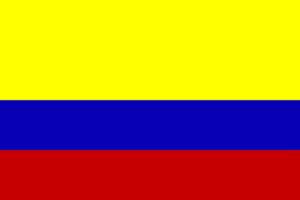
In a recent visit to campus, journalist and human rights activist Robin Kirk joined with Tomas Uribe (son of Colombian President Alvaro Uribe) to discuss Columbia at the Crossroads – the past, present and future issues for Colombia. These issues include drug-trafficking, human rights violations, U.S.-Colombian relations, violence, urbanization and economic development.
Speaking first, Kirk outlined the interplay between drug-trafficking and human rights violations. Kirk outlines a brief history of the drug trade, highlighting its shift from Peru to Colombia and its transformation into a monetary funding resource for the FARC. The advent of extra cash from drugs to militant groups only further enhances the violence, instability and corruption that already exist in Colombia. It perpetuates the continued power struggle. Further, the drug trade also draws in the United States both in terms of policy and in terms of economic supply and demand. Because the U.S. is such a big market for illicit drugs, the drug trade thrives. As a result, incoming money fuels human rights violations within Colombia. The argument Kirk puts forth is that Americans, by proxy of drug purchases, is funding human rights violations. Without such money, paramilitary groups, militants, cartels, and others would have no means by which to organize, arm and operate. Kirk suggests that a solution would be to toss out the current interdiction strategy, the “war on drugs”, and move towards legalization of cocaine as a more cost efficient solution.
Tomas Uribe continued the discussion regarding the overarching existence of violence in all areas of life for everyone in Colombia. He discussed the trend towards urbanization due to the safety concerns that exist in the more lawless rural regions. Uribe further promotes his father’s successes in bringing about improved peace and prosperity since his election in 2002. He itemizes a long list of improvements, touting reductions in homicides, kidnappings, union member killings, unemployment, poverty, human rights violations and displacement. Further, he discusses the improvements in economic growth, per capita income, inflation control, stock prices, security and investment.
Specifically, he focused on Foreign Direct Investment (FDI). I found this interesting given his penchant for entrepreneurship and his desire to see young Colombians grow their own businesses. In studies of entrepreneurship trends, however, it is more likely for entrepreneurship to thrive within a system where there is lower GDP and less large businesses. As a result, the market is open to smaller, local creativity. With FDI, there is increasing openness and reduced barriers to multi-national corporations coming in quickly and filling the void, creating little room left for local entrepreneurs. I questioned Uribe on his somewhat paradoxical praise of FDI. He seemed to speak of it as if it were a potential ‘savior’ for Colombia. Yet, flinging the doors open to a landslide of foreign companies will only squeeze out any room for creative young entrepreneurs. Consequently, this does little to reduce the stifling of youth advancement or provide alternatives to monetized militant, drug and criminal groups.
In his further response to the question, it is interesting to note that he avoided denoting which country, specifically, was the biggest investor of FDI. I can speculate with some confidence that it is the United States. Second, he also confirmed my suspicion about FDI investment as a form of neocolonialism or dependency. Colombian FDI, according to Uribe’s response, focuses only on raw material extraction and export. This sounds all too familiar from class discussions of Latin American development trends.
I came away from the seminar with an intriguing observation. Kirk promotes both the end to U.S. interdiction and the U.S. legalization of cocaine, thereby reducing demand to undercut the drug trade. Yet this argument reveals a dependency on the United States to resolve the Colombian situation. Likewise, Uribe, through support of FDI, centers his hopes for successful economic growth and modernization of Colombia on outside intervention by multi-national corporate investment, once again, dependency upon the United States. The question is, is Colombia ready to take stand up on its own, or must they continue to rely on outsiders to define them? This theme seems to play like a broken record throughout Latin American history. It is certainly a driving influence for the title of the seminar Colombia at the Crossroads.


